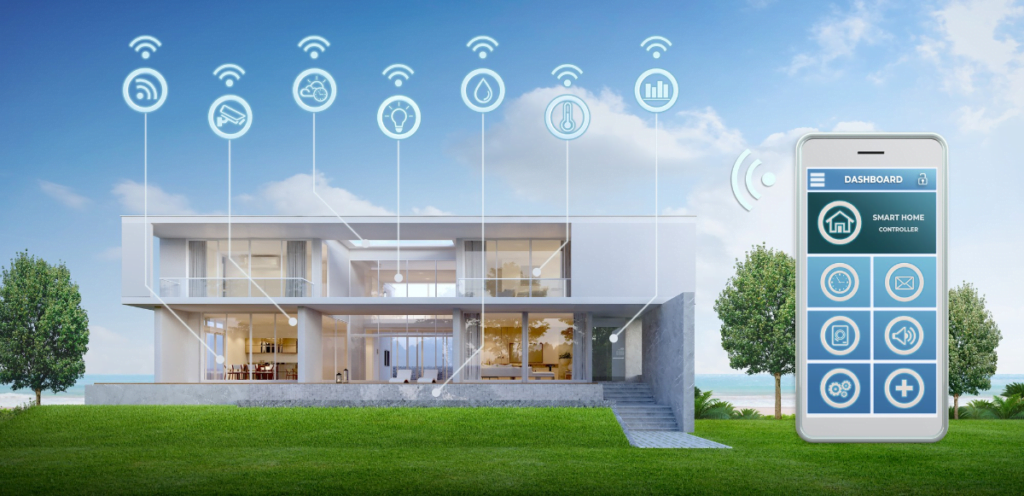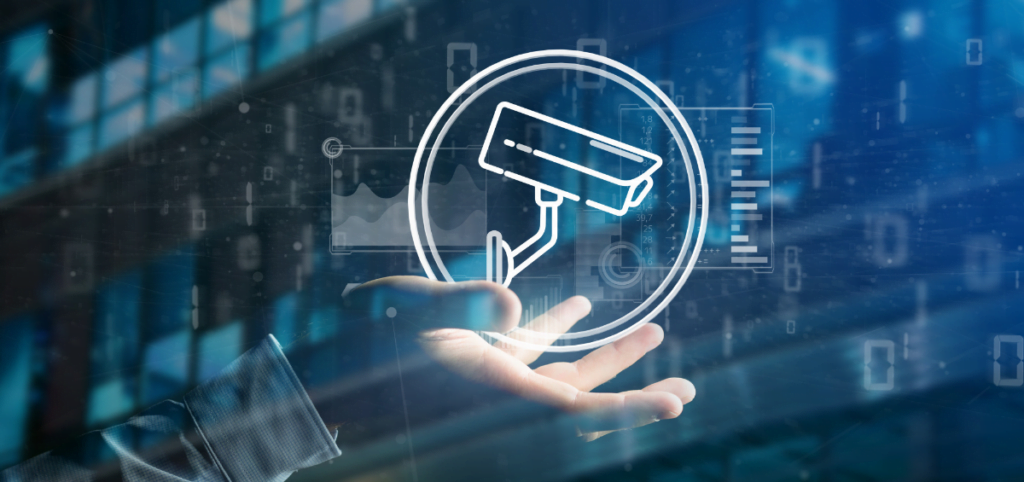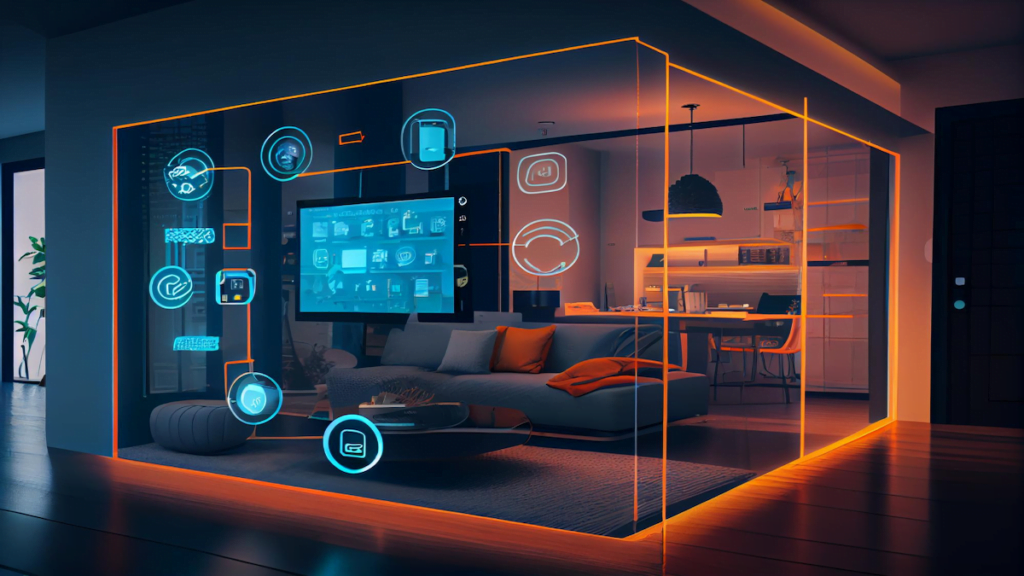Artificial Intelligence (AI) is weaving its way into various aspects of our lives, and its applications in our homes are no exception. The growing trend of smart homes equipped with the Internet of Things (IoT) devices has brought convenience and efficiency to daily living. By taking this concept to a new level, AI-powered homes promise to redefine our living experiences altogether. Here’s how.
AI-Powered Smart Devices and Home Automation
Smart Thermostats
Smart thermostats go beyond merely adjusting temperatures. They analyze your daily routine and learn when you are typically at home and what temperatures you prefer during different times of the day. Whether it’s turning up the heat just before you wake up on a chilly morning or cooling down when you’re away, these thermostats offer unparalleled convenience.
These thermostats can also detect when the home is unoccupied, adjusting the temperature to save energy. With machine learning algorithms, they can even predict your arrival time, ensuring that your home is at the perfect temperature as soon as you walk through the door.
Intelligent Lighting Systems
Intelligent lighting systems provide optimal lighting based on not only the time of day but also the specific task being performed. Working in the kitchen? The system knows to increase illumination. Watching a movie in the living room? It’ll create a cozy ambiance.
These lighting systems can be integrated with other home devices, such as window shades or entertainment systems, creating a seamless environment that reacts to your needs without the need for manual controls.

Automated Cleaning
Robot vacuums and mops are no longer random cleaning devices. They map your home, remembering the location of furniture, stairs, and other obstacles. This allows for efficient cleaning paths and ensures that no spot is missed.
You can schedule cleaning times that fit your routine, and some models can even detect dirt levels, focusing on areas that need extra attention.
Voice Assistants
Voice assistants like Amazon’s Alexa or Google Assistant act as the hub of your smart home. You can control lights, thermostats, security cameras, and even your refrigerator through simple voice commands.
These assistants can recognize individual voices, offering personalized experiences for different family members. Whether it’s playing your favorite playlist or adjusting the room temperature to your preference, these devices make everyone feel at home.
Enhanced Security with AI
Surveillance Systems
AI-driven surveillance cameras and sensors have transformed home security. By providing real-time facial recognition and motion detection, they distinguish between regular activities and unusual patterns that might indicate a threat. Immediate alerts are sent to homeowners and security agencies, while integration with other systems like smart locks and alarms adds layers of protection. With encryption and privacy settings in place, these systems also protect personal data.

Smart Locks
The era of traditional locks has evolved into intelligent, AI-driven locking mechanisms using facial recognition, fingerprint scanning, or smartphone control. This evolution allows homeowners to grant temporary access to guests without physical keys and keeps a log of access for monitoring. The convenience of remote management ensures that home access can be controlled even when away.
Fire and Safety Alerts
AI-powered fire and safety alert systems protect against hazards like gas leaks or fire outbreaks. Early detection is achieved through AI’s ability to monitor irregularities, and integration with emergency services ensures quick response. Regular updates and maintenance reminders make certain the system stays up-to-date, adding another layer of safety.
AI in Home Entertainment
Personalized Recommendations
AI’s ability to curate entertainment by understanding individual preferences has transformed the way we consume movies, music, and shows. This customization saves time from browsing through endless options and keeps users engaged by suggesting new and related content. Plus, it continuously learns and adapts to changing preferences, ensuring a constantly refreshed experience.

Gaming
The integration of AI in gaming has created immersive experiences that adapt to player skills. Customized challenges keep players engaged, while AI-rendered graphics enhance realism. Collaborative gameplay features AI-driven characters that can mimic human-like behavior, making gaming more engaging and dynamic.
Virtual Home Tours
Virtual and augmented reality tours powered by AI make exploring or redesigning homes interactive and engaging. Real-time customization allows users to view changes to layouts, furniture, or color schemes instantly, while the accessibility of virtual tours enables exploration from anywhere. This approach is not only innovative but also cost-effective, saving on physical staging or touring expenses.
In conclusion, AI’s integration into both security and entertainment within the home environment is rapidly progressing. Its innovative applications are providing enhanced safety measures, personalized entertainment, and innovative interactive experiences. By embracing these technologies, homeowners are taking a significant step towards efficient and futuristic living.
Health and Wellness Monitoring
Fitness Tracking
AI-powered fitness devices can analyze your exercise patterns, heart rate, sleep quality, and other vital signs to create personalized workout plans. They can adapt to your fitness level and goals, helping you to stay on track, and even provide virtual coaching sessions to demonstrate proper technique and form.
Diet and Nutrition
Smart kitchen appliances, paired with AI-driven dietary apps, can simplify meal planning. For those with specific nutritional needs or dietary restrictions, AI can scan food products, offer recipes, and create shopping lists. Even more, AI-powered smart refrigerators can track expiration dates, suggest meals based on available ingredients, and order groceries online.

Medical Alerts
Integration with medical devices allows for continuous health monitoring. AI can detect anomalies in vitals such as blood pressure or glucose levels and send immediate alerts to medical professionals or family members. For the elderly or those with chronic conditions, this can provide added safety and peace of mind.
Energy Efficiency and Sustainability
Optimization of Energy Consumption
Smart homes with AI algorithms can analyze energy consumption patterns, adjusting lighting, heating, cooling, and appliance usage to optimize efficiency. By integrating with renewable energy sources like solar panels, AI can further enhance sustainability by determining optimal energy storage and consumption times.
Smart Gardens
AI-powered gardening tools can analyze soil conditions, climate data, and plant needs to automate watering and fertilizing. This reduces water waste and ensures optimal plant growth. Additionally, AI can predict pest infestations or diseases and recommend environmentally friendly treatments.

Waste Management
AI-driven waste sorting systems can recognize and separate recyclables and compostables from regular trash. This enhances recycling rates and minimizes landfill usage. Smart bins can even inform local waste collection services when they’re full, optimizing pickup schedules.
Integration with Transportation
Vehicle Communication
AI-powered homes can communicate with electric vehicles to schedule charging during off-peak hours, ensuring energy efficiency and cost savings. Your home can even communicate with your car to prepare for your arrival, adjusting temperature and lighting as you approach.
Traffic and Commute Prediction
Smart homes can sync with transportation apps to offer personalized commuting plans. AI algorithms analyze real-time traffic data, weather conditions, public transportation schedules, and personal preferences to find the quickest, most eco-friendly route.

Ethical and Privacy Considerations
AI-powered homes collect vast amounts of personal data, raising concerns about privacy and security. Transparent data handling policies and robust security measures are essential to protect users’ privacy. Additionally, efforts must be made to ensure accessibility, considering factors like affordability and user-friendliness to make AI-powered homes available to diverse populations.
Challenges and Roadblocks
The path to fully integrated AI-powered homes faces challenges, such as:
- Interoperability: Ensuring seamless communication between different brands and technologies.
- Cost: The initial investment in smart devices and AI integration can be high.
- Internet Dependence: Reliable, high-speed internet is essential for most AI functionalities, potentially limiting access in rural or underdeveloped areas.
- Regulatory Compliance: Adhering to laws and regulations related to data security, privacy, and accessibility.
Conclusion
The future of AI-powered homes is both exciting and transformative. While there are challenges to navigate, the potential for convenience, security, sustainability, and overall enhancement of daily living is immense. As technology advances, we can look forward to even more sophisticated and intuitive AI-driven living spaces, changing the way we live for the better.




